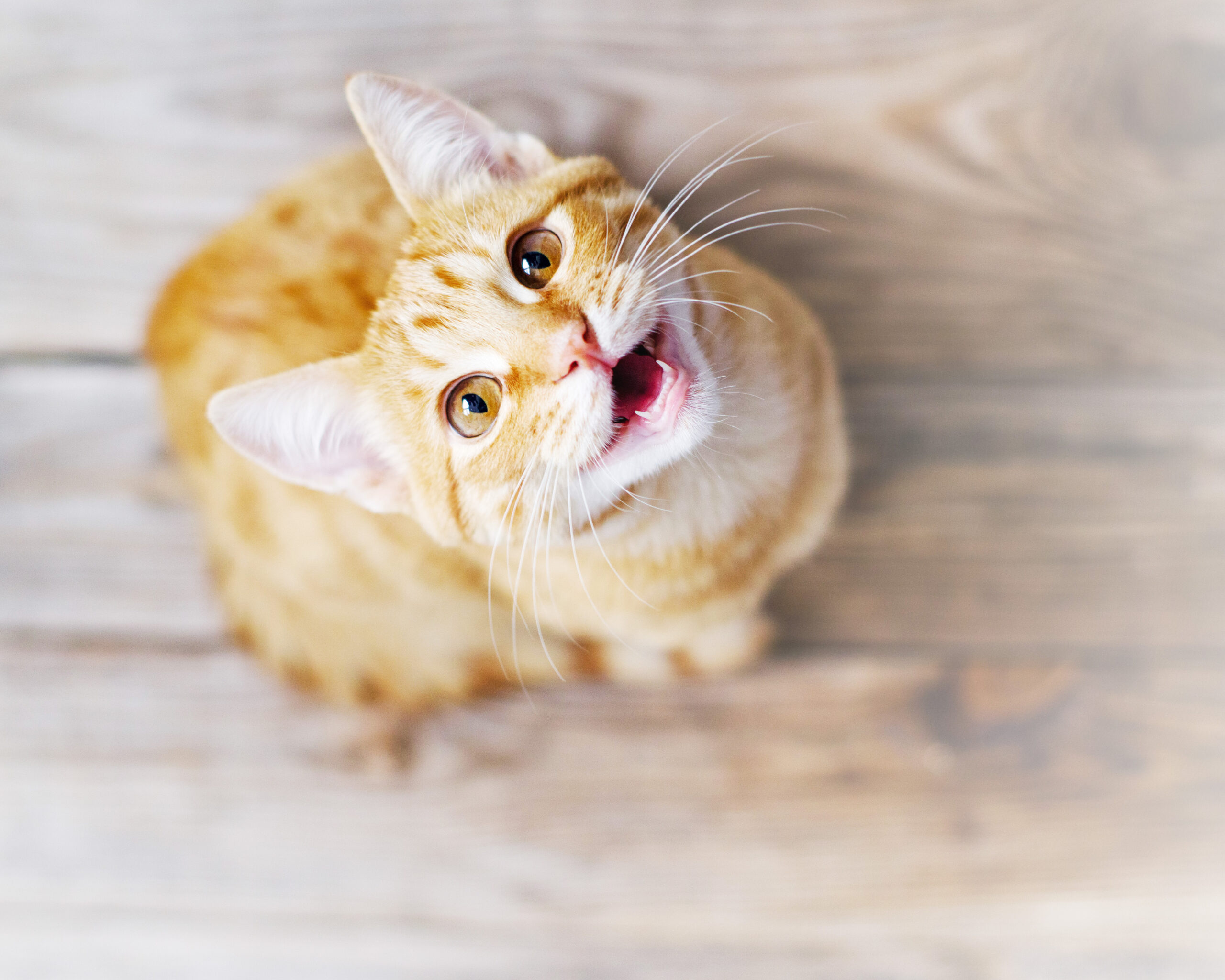
What is Cognitive Dysfunction?
Just like in people, cats’ brains can show signs of ageing, known as cognitive dysfunction. Although we are unsure what causes it, it could be due to a combination of long-term oxidative cell damage and reduced blood flow to the brain, which could be attributed to stress, ageing or other disease processes.
What are the signs of Cognitive Dysfunction?
In some cases, the signs can be quite subtle, and some owners may mistake it for the normal ageing process. However, sometimes the signs can become quite pronounced, resulting in a strained relationship with your cat.
The signs include:
- Excessive vocalisation
- Altered interactions with family members
- Changes in the sleep cycle e.g. waking up in the middle of the night
- Toileting in the house
- Disorientation
- Changes in activity levels
- Anxiety
In older cats, the most common sign is excessive vocalisation, which usually occurs at night.
At what age are cats affected?
A cat is considered to be senior from the age of 11, and super-senior from 15 years old. Age-related changes can be seen as the cat reaches these senior life stages, with more signs being present as the cat becomes older, and the severity of signs can also increase with age.
What can I do if my cat is showing signs of Cognitive Dysfunction?
Although many cats find coming to the veterinary practice quite stressful, an examination from one of our vets is essential. We are a Silver status Cat Friendly Clinic, with extra measures to help the visit to go more smoothly, with less stress for your cat. We could provide you with calming medications to give beforehand if your cat is severely affected. Keeping a diary to note changes in behaviour, body weight, toileting habits and amount of food consumed can be really useful for monitoring, and this information will be valuable to your vet when you visit.
Blood flow to the brain can be affected by other conditions such as high blood pressure, heart disease and anaemia. Once your vet has performed an examination, they may suggest measuring blood pressure and performing blood and urine tests. Once other conditions such as hypertension, hyperthyroidism, kidney disease, urinary tract infection and osteoarthritis have been addressed, the cat’s signs may improve. However, if the signs are still present then this may indicate that cognitive dysfunction is present and other interventions may be required.
How can I help my cat if they have cognitive dysfunction?
Unfortunately, there isn’t a specific treatment for cognitive dysfunction, instead, we use medications, supplements and environmental changes to help manage the condition.
Medications that help to reduce anxiety or improve blood flow to the brain may help, as well as supplements which are high in Omega 3 or antioxidants. Making changes to your cat’s environment and routine can be beneficial, as this provides more enrichment which engages and stimulates the cat’s brain, or can help them with the things they are finding more difficult.
Environmental changes that can be made include:
- Spending more time with your cat
- Providing your cat with toys and puzzles
- Ensuring that the food and water is easy for the cat to find and access
- Providing multiple comfortable beds
- Providing low-sided litter trays that are easy to access, with soft litter such as sand
- Ensuring there are quiet places for your cat to rest, away from dogs and children
Using plug-in diffusers around the home that produce pheromones or calming scents can also help to reduce anxiety and are recommended for cats with signs of cognitive dysfunction.
Although providing new things for your cat to interact with can be a good idea, ensure that these are added gradually, and try to keep their overall routine the same to reduce confusion. In some cases, night-time vocalisation will not improve despite medical and environmental management and wearing earplugs at night may be the only solution!
As your cat becomes older, it is important to arrange for regular health checks to be carried out so that diseases can be caught early, and appropriate treatment or management can be provided. Give us a call to arrange a wellness check or for a chat if you have any concerns about your cat.




